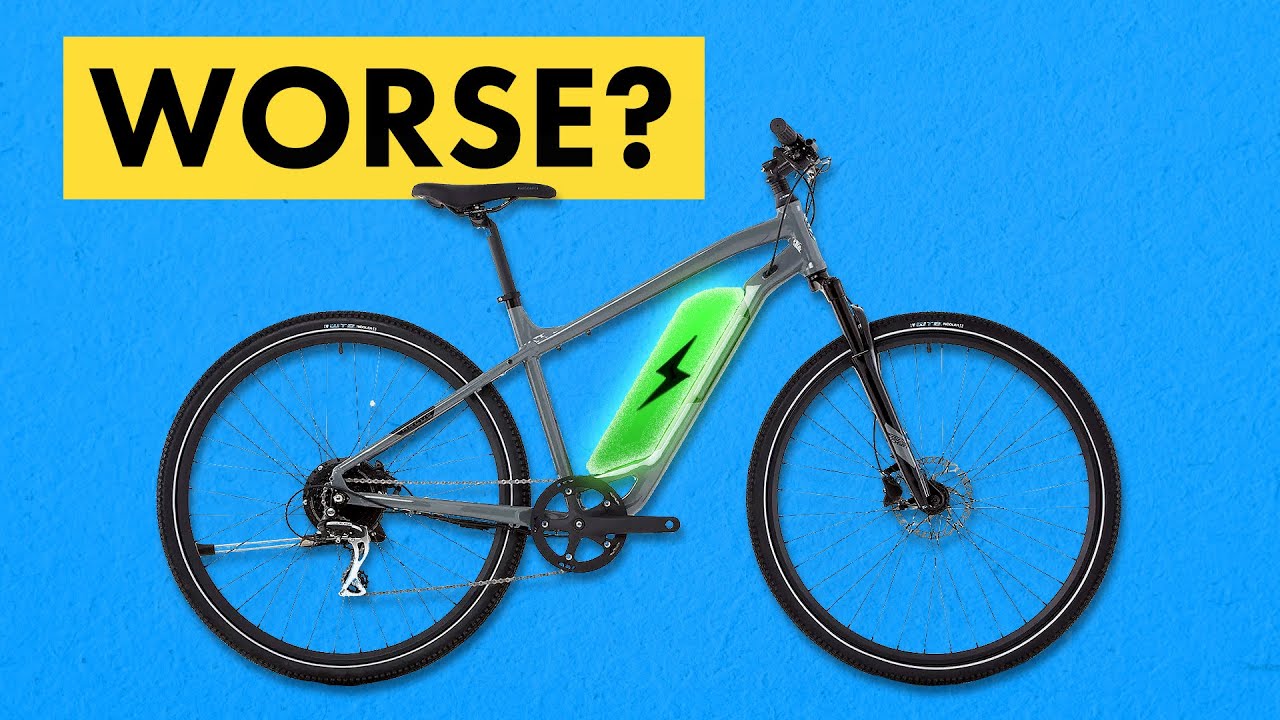I editorialised the title as the original was clickbait, but the video itself is quite good. Interestingly, e-bikes are claimed to have lower emissions than acoustic bikes, although it likely depends on diet (the author didn’t specifically compare a vegan diet between the two types but did indicate that vegan + electric is the most carbon efficient form).



The arguments between the two certainly can get complex easily. In the end, either option is well ahead of cars and at least in the same ballpark as rail. And I think that’s the most important takeaway, that bikes are an incredibly efficient form or transport, and at the least e-bikes are a good option for those where a normal bike would be (or perceived to be) too much effort.
I’ll add the video does consider non-carbon environmental related effects to be worse with e-bikes compared to normal bikes, which makes sense because of the battery. But hopefully that will get better over time with the move away from cobalt and other rare earth minerals, and an increase in recycling of batteries.
I agree that the comparison between the two is quite complex (given the many side effects). But I was interested in this question and have done a few back-of-the-envelope calculations on the ongoing CO2 emissions:
Regular Cycling:
(Motor-only) E-bikes:
Based on this, it seems quite plausible that an E-Bike is significantly more efficient than a regular bike, even if the rider is a vegan. But, both are way better than all types of cars and even public transport.
References
again though. the e-bike rider is burning calories while riding. You basically have to add the calories they burned over the time of the commute because the normal cycling riders calories are not calories extra burned but just the calories they burned. So for example from your first link:
"Endurance exercise, like jogging or swimming, for more than 30 minutes can improve your fitness and help you lose weight. Running for half an hour can burn between 250 and 500 kilocalories. Swimming burns between 300 and 400 kcal in the same amount of time, with a front crawl burning up to 450 kcal. "
Needs to add in that sitting 30 minutes burns 66 calories in the example here https://captaincalculator.com/health/calorie/sitting/ They list fidgetting but riding the e-bike will be decently more than sitting in an office chair or car stilly. The variable from your linked article comes out a lot due to weight and extertion level. Bike commuting is usually done at a relaxed pace (unless your late!). I agree though with the top paragraph of @vividspecter
You’re right that the calories burned while riding the E-Bike would also need to be considered. The site you linked gives 220 kcal/hr for “Motor scooter, motorcycle” and 630 kcal/hr for “Bicycling, 12 - 13.9 mph, leisure, moderate effort”. This corresponds to 1960 kcal / 100km excess calories for biking (at 75kg weight). Going slower than that (which I certainly don’t do ;-) ) somewhat reduces the difference. But then the E-Bike is faster and you somehow have to account for that… I’m sure that people have written scientific publications on such considerations. My napkin math certainly doesn’t have that level of rigor.
Overall there’s certainly better ways to reduce your CO2 footprint than switching from a bike to an E-Bike. But perhaps E-Bikes are better than their reputation.
e-bikes have a reputation? Im not claiming they are bad. They are better than any form of transit as far as I know outside of walking and biking. One thing that has not been mentioned is getting excersise is also a general society benefit outside of the strict carbon footprint thing and pollution. Im not sure if public transit could beat it although in my city there is an electric train that does not use batteries so I suppose that might and they are electrifying some busses but the weight makes me wonder if it still could given how light the e-bike is. I keep hoping in the US they will do that tax incentive they abandoned. One thing not related to the article is they tax incentivize electric cars but not bikes but many people simply can’t do an electric car because they can’t plug it in while an e-bike could be brought in the apartment although usually the batter is removable to charge at your desk or whatever.